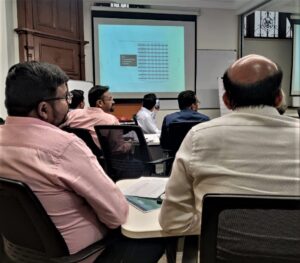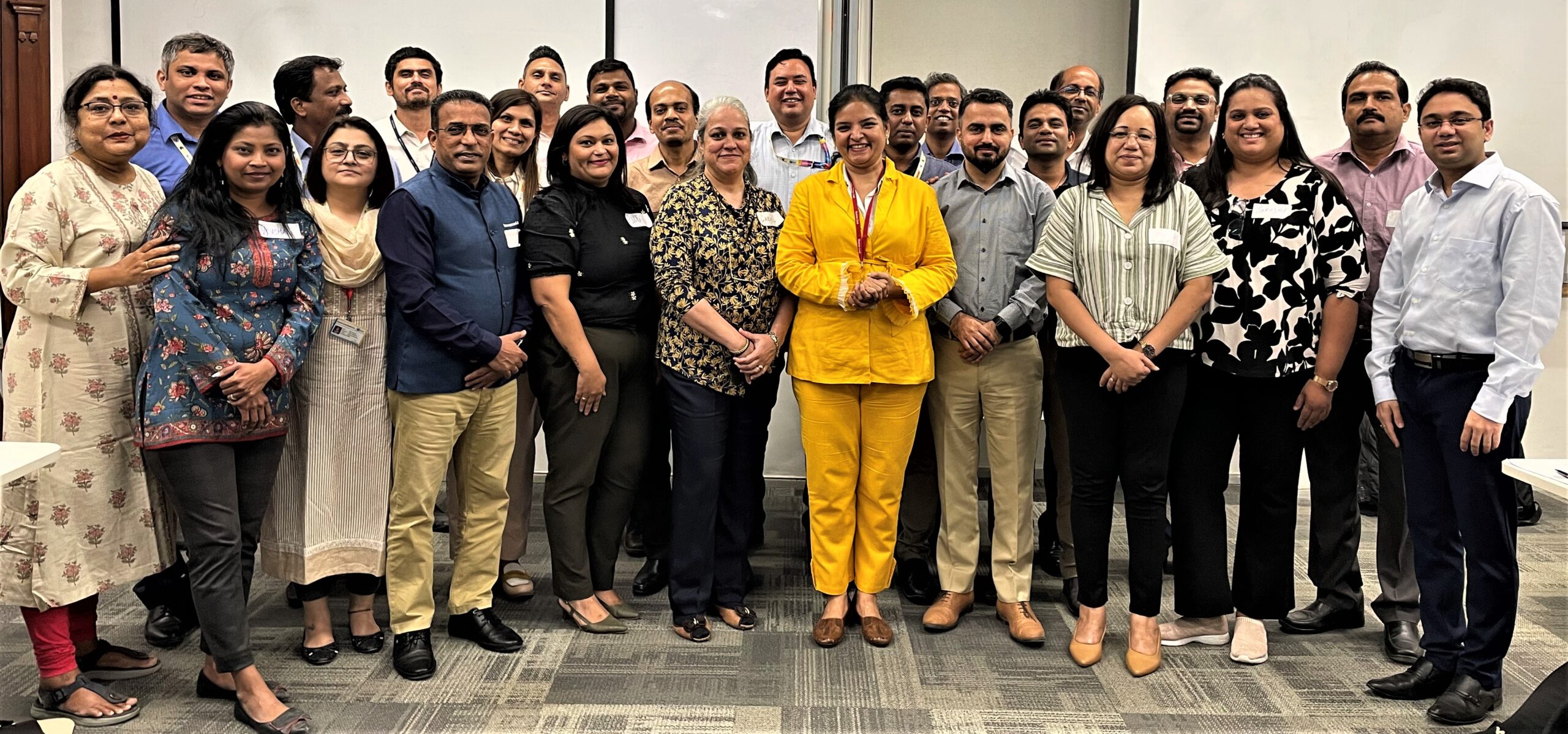John Maxwell rightly said “A leader is one who knows the way, goes the way and shows the way”.
 The question always remains, what strategies do we need for teams to accomplish the extraordinary? How do you get others to follow you to places they’ve never been before? How do you get others, by free will and through free choice, to move forward together on a common purpose? How do you get others to want to do things that matter and make a difference?
The question always remains, what strategies do we need for teams to accomplish the extraordinary? How do you get others to follow you to places they’ve never been before? How do you get others, by free will and through free choice, to move forward together on a common purpose? How do you get others to want to do things that matter and make a difference?
Keeping these things in mind, Team Learning and Development conducted a pilot batch, which consisted of 23 participants, on 5 Practices of Exemplary Leadership, in Mumbai. Some key takeaways from our certified participants:
“The deliberation on my core skills to improve my actions as a leader, to lead with the 3 steps formula, and working on specific statement values on a case to case basis, was an insight to this program. I participated with great interest to gain knowledge, and apply them in my day to day work”
“The learning was very clear, are we leading enough? The LPI describing 30 statements on leadership behaviours was a good exercise and a mirror for me”.
The new workplace demands that colleagues at all levels drive results, have situational awareness, build inclusive teams, and push for innovation. It is our endeavour to conduct multiple batches so that our colleagues learn and execute the what they have learnt in the training. In other words, we need people at all levels of an organization to behave like leaders. The new competitive requirements—quality, innovation, customer responsiveness, and flexibility—demand an organization filled with people taking the lead in improving processes, collaborating on products, and responding appropriately to ever-changing markets.
The 5 Practices of Exemplary Leadership are:
Model the Way: Set the example by behaving in ways that reflect the shared values. Achieve small wins that build confidence, commitment and consistent progress.
Inspiring a shared vision: Envision an uplifting, exciting, meaningful future. Enlist others in the shared vision, interests, hopes and dreams.
Challenge the Process: Search out challenging opportunities to change, grow , innovate and improve.
Enabling others to act: Foster collaboration by prompting cooperative goals and building trust. Strengthen people’s ability by delegating power, developing their competence and offering visible support.
Encourage the Heart: Recognise individual contributors to the success of the project. Celebrate team accomplishments at regular intervals.
Leadership is the accomplishment of a goal through the direction of human assistants. A person who successfully marshals his/her human collaborators to achieve particular ends is a leader. A great leader is one who can do so day after day, and year after year, in a wide variety of circumstances.
—Mohit Trivedi—
Senior Manager-Learning & Development.


